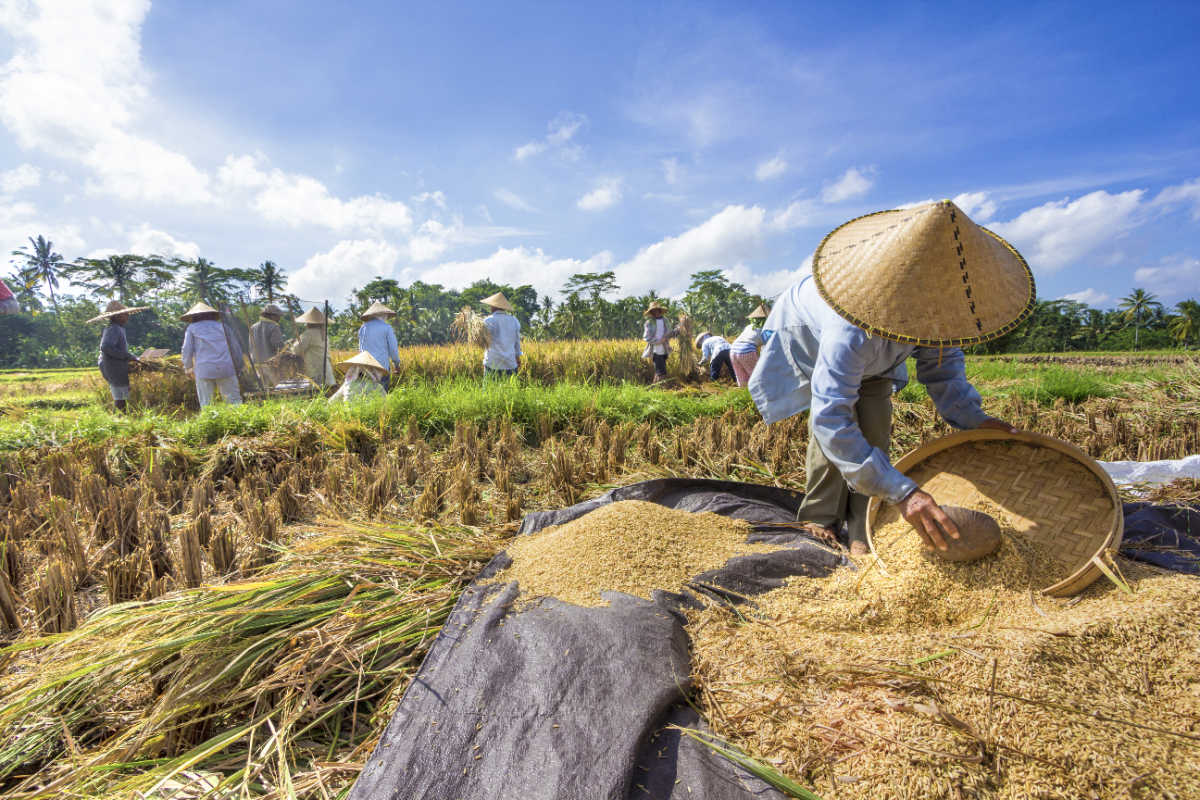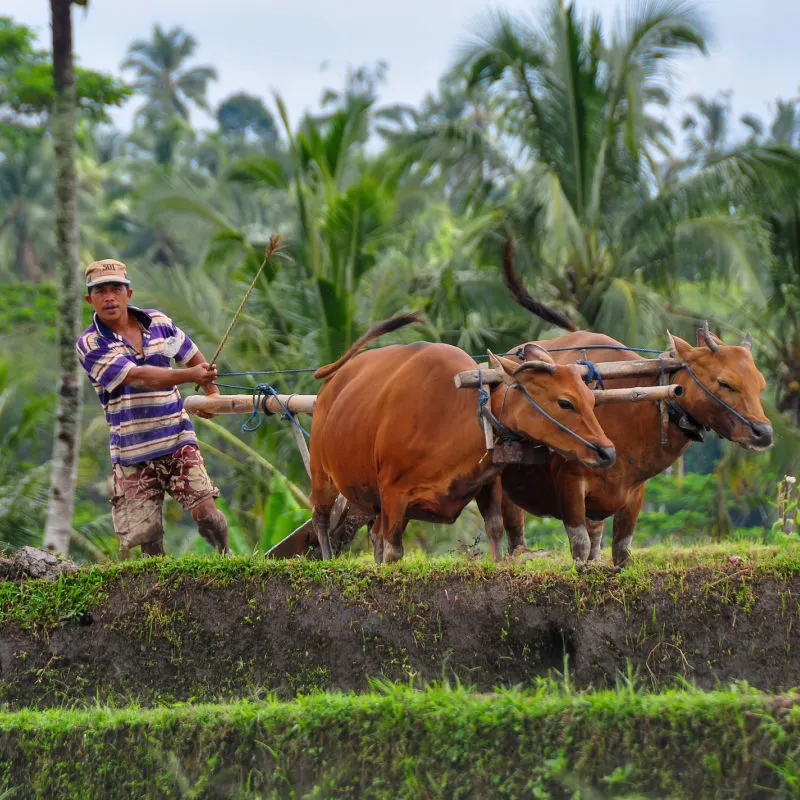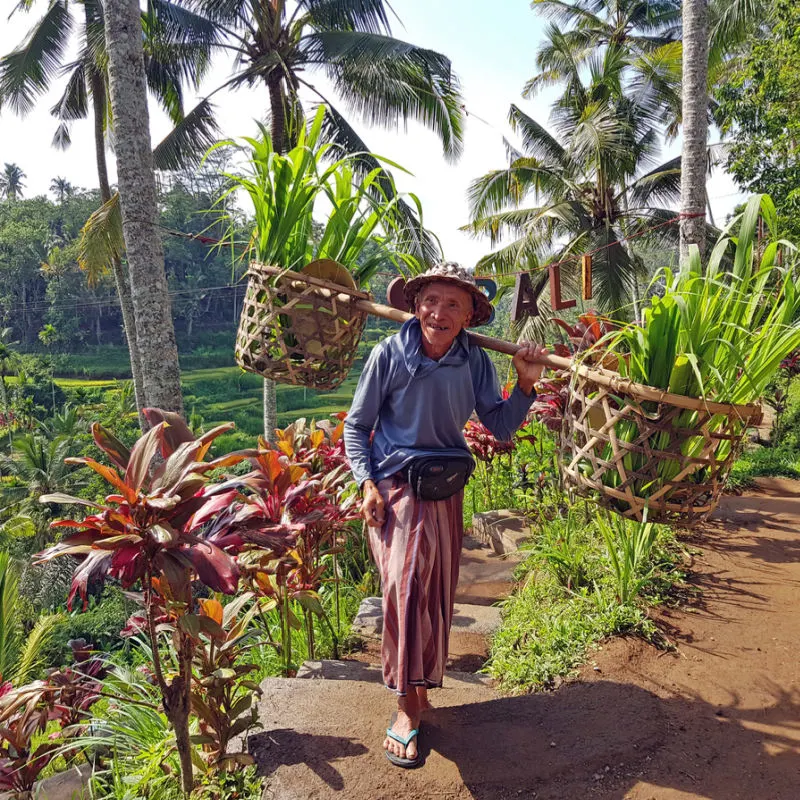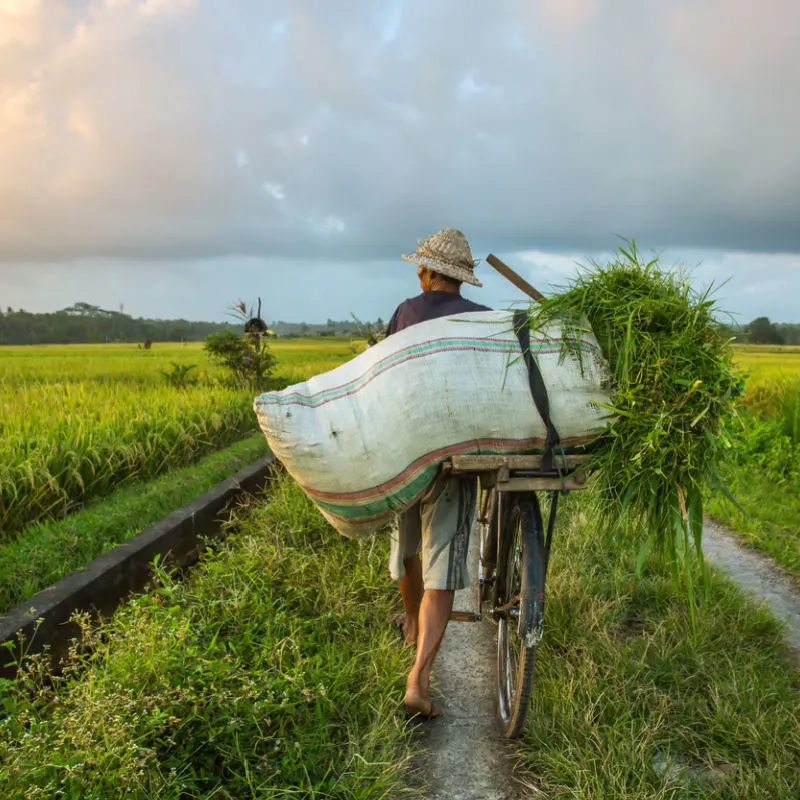With land conversation rates in Bali rocketing through the roof, the United Nations Educational, Scientific, and Cultural Organization has committed to working with the Indonesian Government to safeguard the island’s natural heritage for the good of people and the planet.

The conversion of agricultural land into land for tourism development has felt as if it has been increasing exponentially in the post-pandemic era.
With Bali’s fragile agricultural landscape managed using traditional farming and water management techniques, this rapid turnover of land is creating problems across the island.
As the World Water Forum is still underway in Nusa Dua, leaders from global governing bodies and agencies have expressed concern for Bali’s natural landscape.
Reports show that UNESCO and the Indonesian Government are committed to maintaining the sustainability of Bali’s agricultural irrigation system, known as the Subak, as part of the world’s cultural heritage.
Delegates from the World Water Forum and the Indonesian Minister for Tourism and Creative Economies, Sandiaga Uno, have visited the UNESCO World Heritage Jatiluwih Rice Terraces as part of the conference field trip sessions.
Xing Qu from UNESCO told reporters, “One of [the partnership’s] efforts is to advocate for the protection of cultural heritage related to water in order to overcome the challenges of water problems in the 21st century, all of which are closely related to the Subak context.”
Qu added, “We have to reflect back on how humans relate to water and how we have consumed and processed water.”
“We will also release new initiatives in Indonesia to support more sustainable water management.”
It has been confirmed that UNESCO will step in to increase promotion and education regarding how communities in Bali and government agencies can use water wisely.
A number of initiatives that will be implemented include educational support related to water management, capacity building, and facilitating cross-border water cooperation.
The field trip group was joined by Secretary of the DPP Peradah Indonesia Bali, I Ketut Eriadi Ariana, who told reporters that the world’s relationship with water must be taken more seriously.
He said, “When the spring is gone, the minds of the Balinese are gone. There are ancient Balinese texts that talk about water management and various rules on how to protect and care for water. Subak is not just a terrace, but is a form of solidarity.”
He concluded, “World water governance must be based on the values of solidarity and connectivity so that we can get out of water disasters.”

Bali’s subak system and agricultural practices may not seem like the most exciting thing to learn about on vacation in Bali.
Yet the rice terraces of Jatiluwih and Tegallalang, as well as the rice fields of Sideman and West Bali, have become such iconic symbols of the island that yours from all over the world have visiting rice fields as one of their top vacation activities.
It is easy to see why the verdant green rice terraces have capture the wanderlust of international travelers, and many rice terraces have been adapted to be more tourist friendly.
As more and more rice paddies and agricultural land gets converted to tourism development, a whole host of environmental and cultural issues.

Land that has previously been used to produce food has been lost, meaning Bali’s overall food production capacities are reduced.
This same land is also essential for water capture; once rice paddies have been concreted over or built upon, the land capacity to hold water is decimated, and the risk of flooding and landslides is hugely increased.

Culturally, this creates issues too, as traditional farming practices are lost, so too is a way of life and a way of connecting to the landscape. Young people in farming communities must seek work elsewhere, often further a field than in their home villages.
Remove All Ads & Unlock All Articles… Sign up for The Bali Sun Premium

Plan Your Bali Holiday:
Book The Best English Speaking Drivers For Airport Transfers & Tours
Choose From Thousands of Bali Hotels, Resorts, and Hostels with Free Cancellation On Most Properties
Book Cheap Flights To Bali
Don’t Forget Travel Insurance That Covers Medical Expenses In Bali
For the latest Bali News & Debate Join our Facebook Community
SUBSCRIBE TO NEW POSTS
Enter your email address to subscribe to The Bali Sun’s latest breaking news, straight to your inbox.

Harrison
Saturday 25th of May 2024
It’s quite hilarious to think that Balinese would put conservation ahead of making money.
It’s blatant in our area that people are building on zones not coded for residential or tourism. No problem say local Banjar….some money will make sure it doesn’t become a problem in the future.
Selling and leasing land like crazy for money now, rather than think about the future for their children and children’s children.
Exp
Sunday 26th of May 2024
@Harrison, Indonesians have their own term for jobs/positions that comes with potential to make huge money as "gatekeepers": "Posisi Basah" or in English: "Wet job/position".
Josh
Saturday 25th of May 2024
But money always talks loudest.
Exp
Friday 24th of May 2024
"The conversion of agricultural land into land for tourism development has felt as if it has been increasing exponentially in the post-pandemic era."
This is not a scandal. It is all according to the plan: 22 March 2022 it was reported "Bali Government To Develop 3,100 Acres Of Rice Fields For Tourism"
3,100 Acres is the same as a zone 25 km long and 500 meter wide along the beach. Sounds like the Balinese are actually behind on their own ambitious plan as many thousand more villas to come.
LINK
Baliblest
Friday 24th of May 2024
Now that UNESCO has said this outloud, maybe authorities will start to listen to what is plain for all of us who live here can see everyday.
JoKer
Friday 24th of May 2024
"Delegates from the World Water Forum and the Indonesian Minister for Tourism and Creative Economies, Sandiaga Uno, have visited the UNESCO World Heritage Jatiluwih Rice Terraces as part of the conference field trip sessions".
It is just another meaningless photo op for the esteemed dim witted minister Uno who wants to transform Bali into Hong Kong or Singapore.